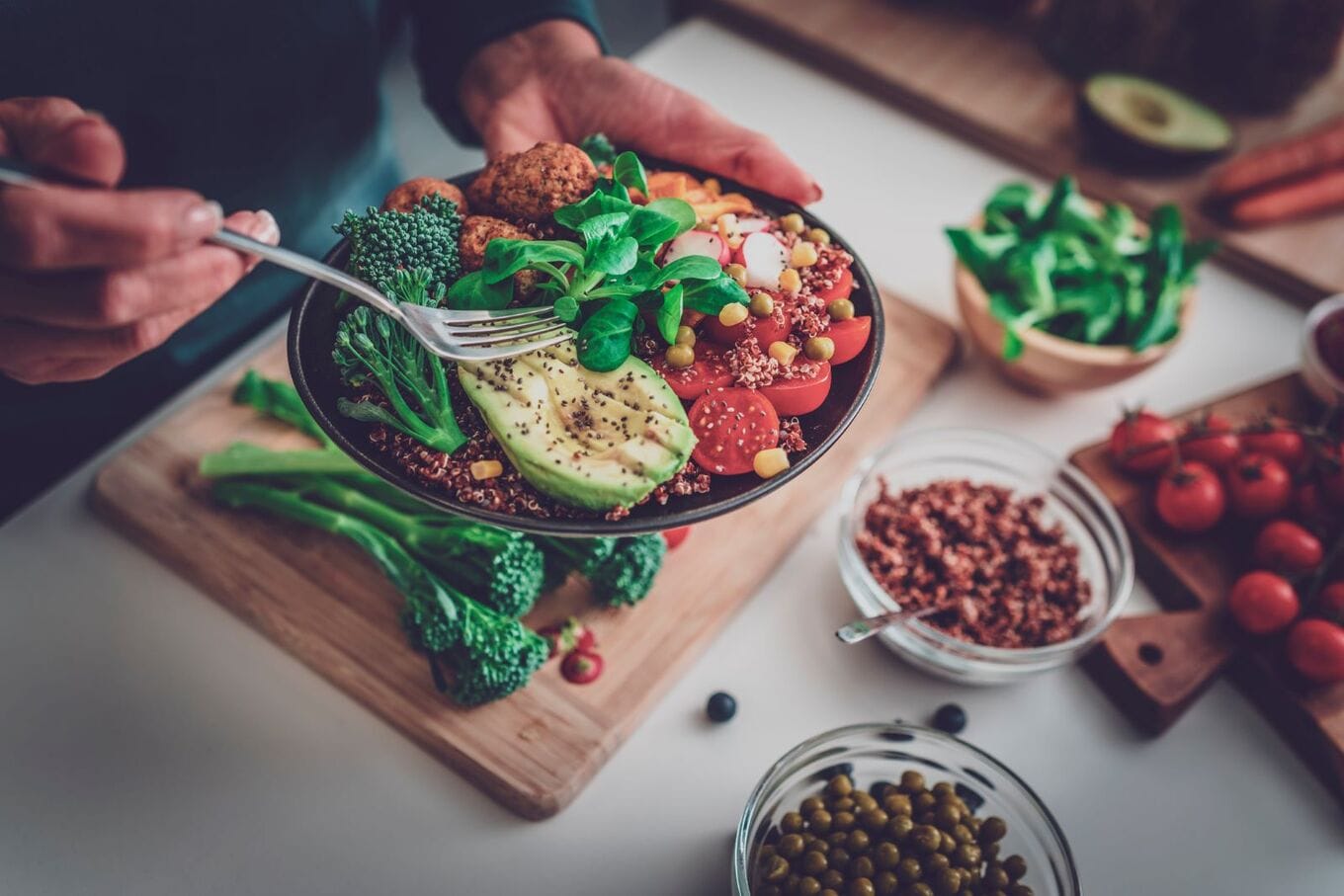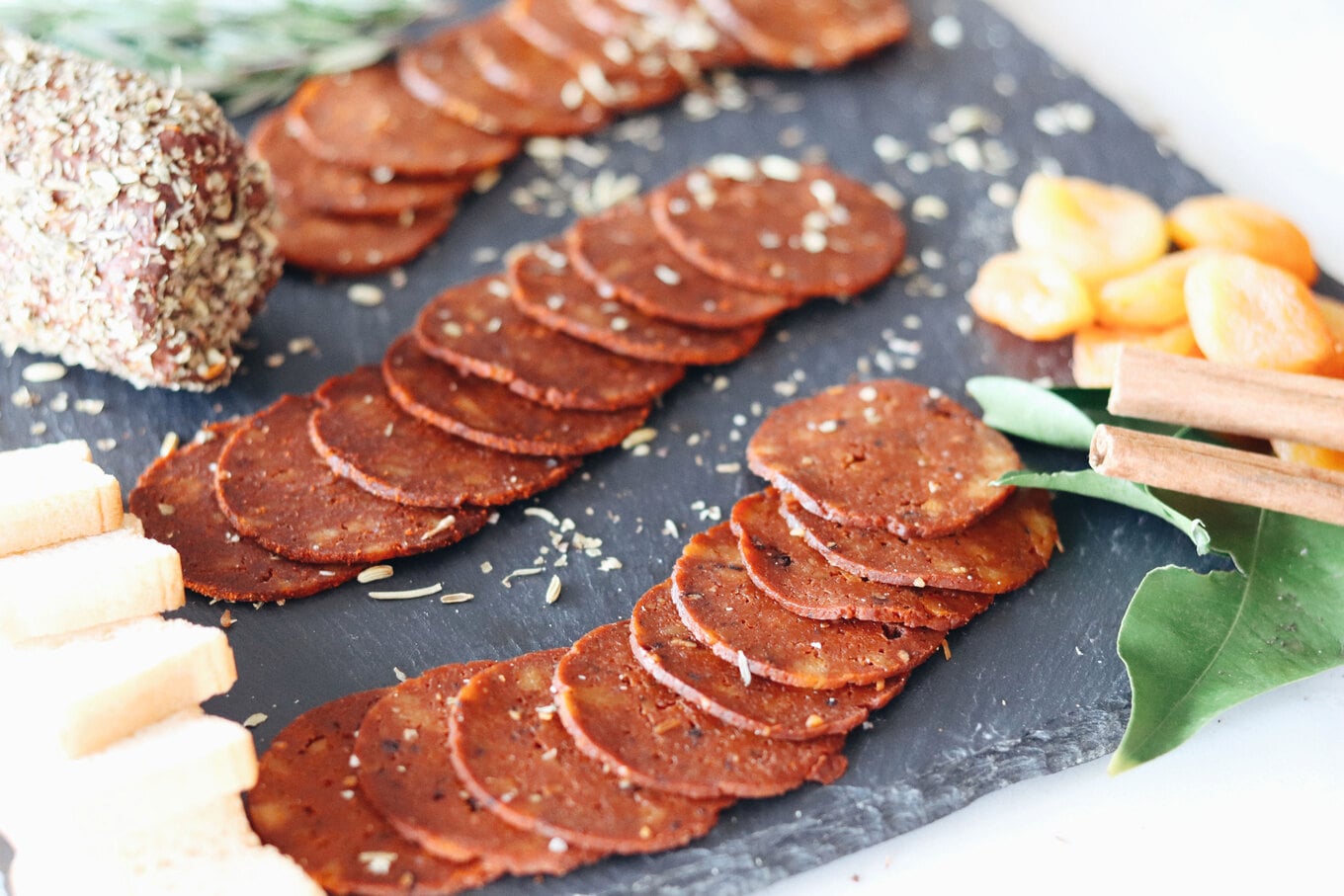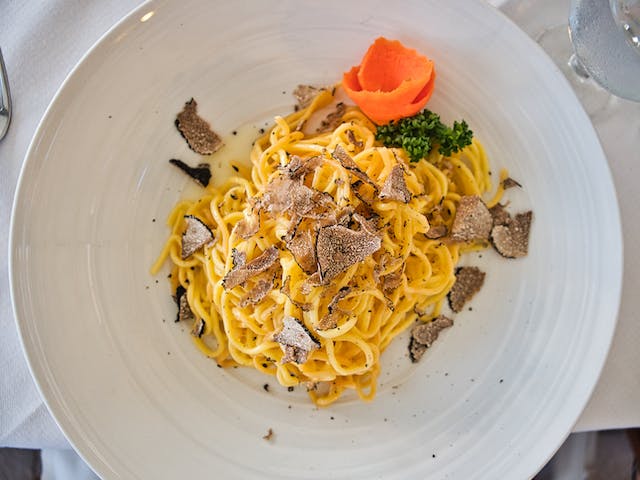New York-based MyForest Foods is entering 2023 with the goal of taking its mycelium-based meats to new heights. Last year, the company laid the groundwork for commercializing its MyBacon, a vegan bacon it makes from mycelium—or the fast-growing root systems of mushrooms.
While MyBacon has only been available at a couple of stores on the East Coast, this month, the company has expanded the vegan bacon to 32 retailer and foodservice locations across Massachusetts and New York, including popular retailers in New York City such as Orchard Grocer, LifeThyme Natural Market, and Perelandra Natural Foods.
To propel its mycelium meat expansion, MyForest also added food industry veteran Jeff Mundt—who most recently worked at poultry company Butterball—to its team as Vice President of Research & Development.
MyForest Foods
“MyForest Foods has had a tremendously fast start to 2023—with key hires, new partnerships, and expanded harvest capabilities—we’re in an optimal position to expand our product offering and meet the growing consumer demand,” MyForest Foods founder and CEO Eben Bayer tells VegNews.
MyForest Foods is the food arm of Ecovative, a larger sustainability focused company owned by Bayer that creates mycelium-based solutions to problems such as plastic waste. This month, Ecovative announced its acquisition of Lambert Spawn Europa B.V. facility in the Netherlands, which will directly benefit its mycelium production in various ways, including in supporting the growth of MyBacon and other mycelium meats.
Table of Contents
Bacon and beef, made better with mycelium
From environmental degradation to animal cruelty, industrial pork farming comes with many unsavory issues. MyBacon’s mycelium version improves upon pork in that it does not contain cholesterol or nitrates, grows very quickly, is much more environmentally friendly to produce, and, of course, does not require the slaughter of pigs.
And while MyForest Foods can produce many mycelium meats, Bayer decided that its flagship product would be vegan bacon because he characterizes it as a leverage point of sorts.
“Bacon, interestingly, appears to be what I call a ‘trim tab’ which is the rudder on a boat that turns the boat,” Bayer previously told VegNews. “The idea is that it’s the point of maximum leverage.”
“[Bacon] was a trim tab because out of all the whole-cut meats that we made in our first iteration, bacon blew it out of the water in our taste test against existing bacon, plant-based bacon, and just generally, people loved it.”
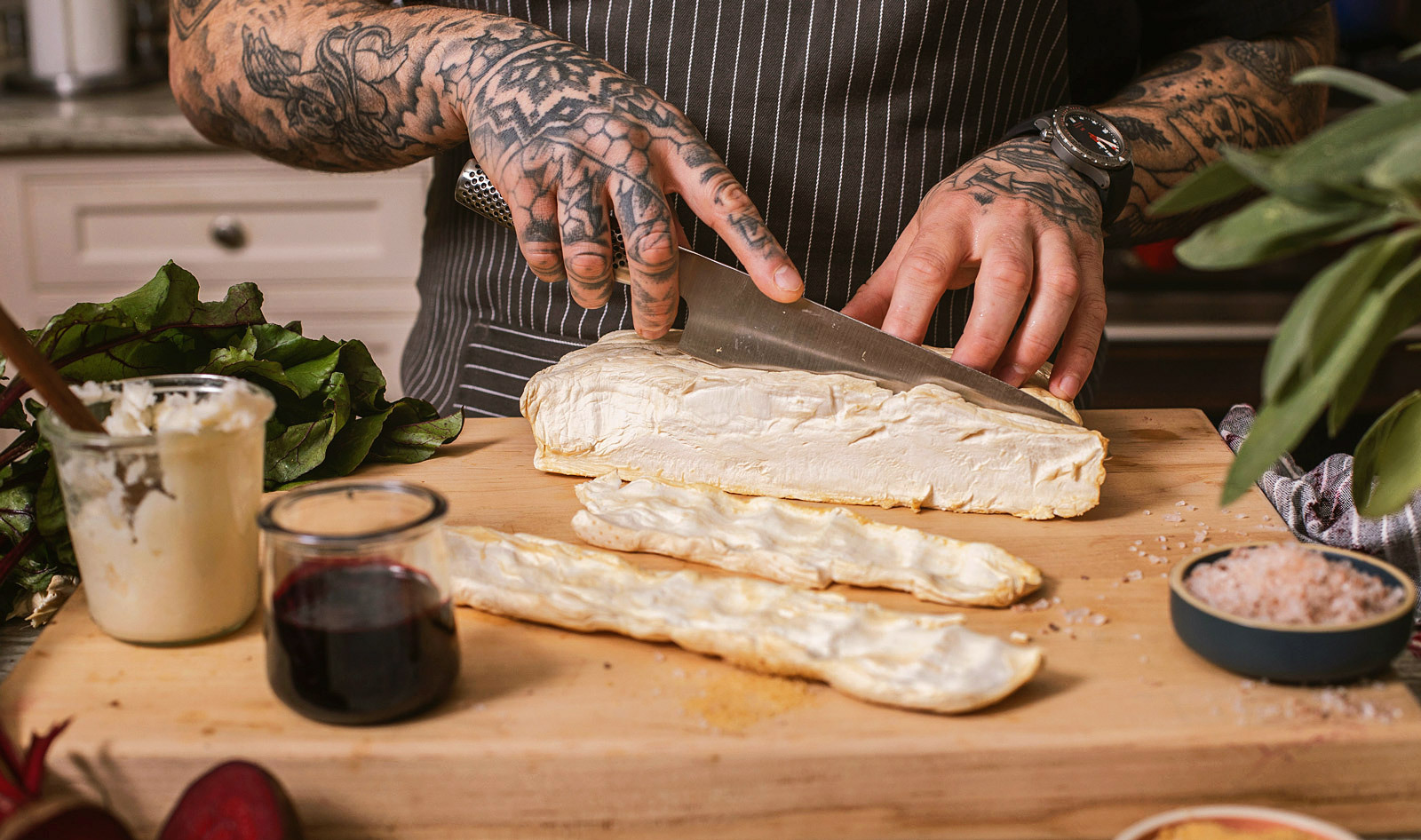 MyForest Foods
MyForest Foods
And soon, Bayer will be ready to test the waters with additional mycelium meats as MyForest Foods prepares to enter a new category with its forthcoming vegan beef jerky launch.
Dubbed “MyJerky,” this snackable vegan meat will be made from similar ingredients to MyBacon. While MyForest is not yet sharing full details about its vegan jerky, Bayer tells VegNews that his team has already been snacking on the prototype for some time.
“While MyBacon was an important introduction for consumers into the mycelium category, it certainly won’t be our last product innovation,” he says. “Over the past year, the internal MyForest Foods team has been enjoying MyJerky, and we’re proud to launch the product as a tasty, snack-able, plant-based option for our customers later this year.”
New era of meat production: the mycelium ranch
Last month, Colorado got its first animal-free ranch where 45 million pounds of meat can be produced annually without slaughtering a single cow. That’s because this ‘Mega Ranch’ is operated by Meati Foods, another company that transforms mycelium into meat. Here, one tablespoon of fungi spores is capable of producing hundreds of cows worth of meat in a matter of several days.
The founders of both MyForest and Meati share a commonality as they were raised around animal farming, with Bayer exposed to pig and chicken farming on his family farm in Vermont and Meati’s Tyler Huggins growing up on a bison ranch. Both entrepreneurs are working to make mycelium farming the future of meat production.
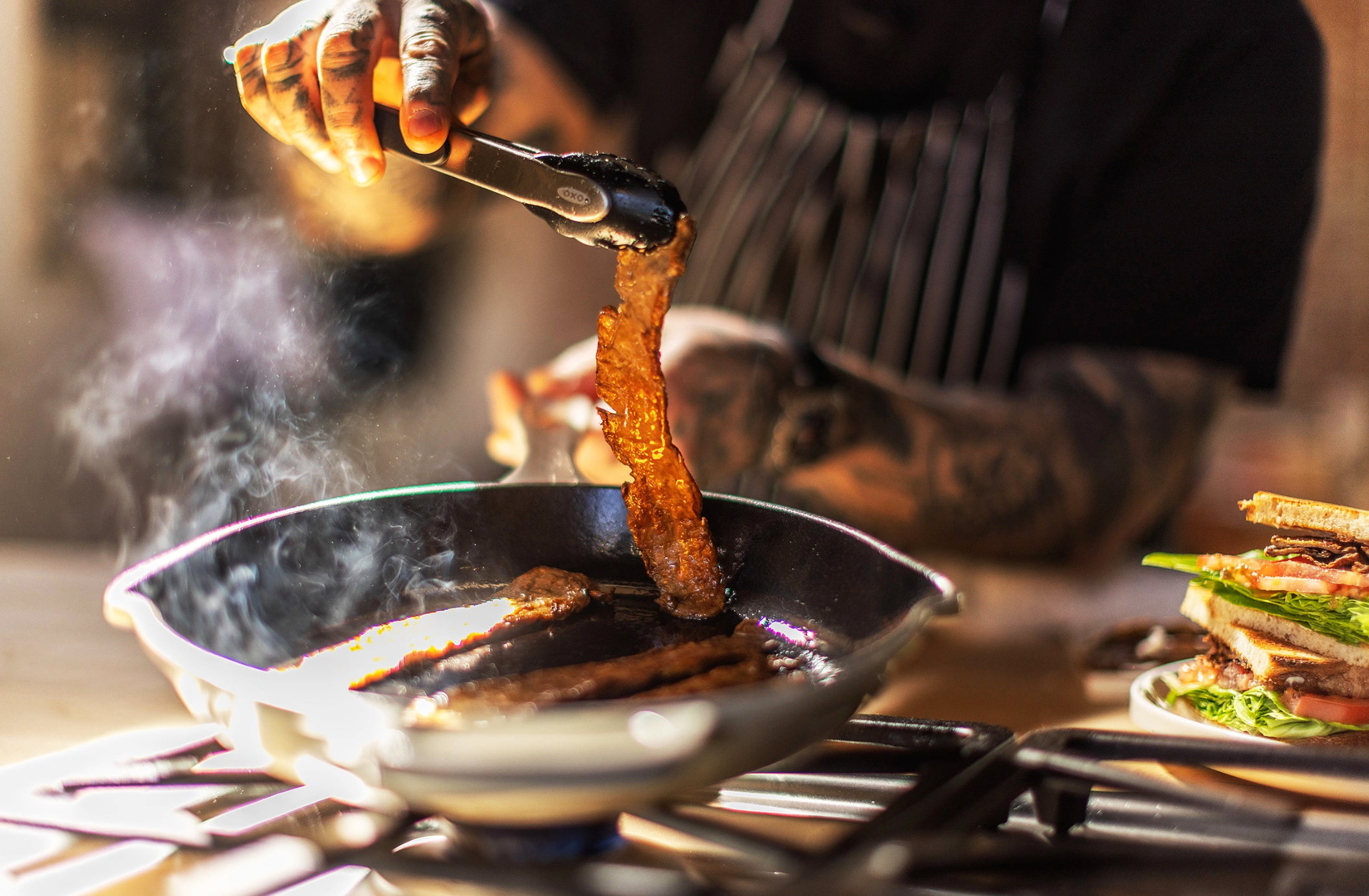 MyForest Foods
MyForest Foods
MyForest just completed its first commercial harvest at the Canadian farm Whitecrest Mushrooms. Outfitted with Ecovative’s patented AirMycelium technology, the farm can produce nearly three million pounds of MyBacon on less than one acre of land—an astronomical yield improvement compared to the production of traditional pork bacon.
Tyler Watson, a mycologist at Whitecrest Mushroom, is excited to be part of this future. “As the importance and utility of mycelium are being increasingly realized, I am tremendously excited to reach this critical milestone,” he said in a statement.
“Working with MyForest Foods to scale the production of its remarkable MyBacon product has been an incredible journey and I could not be more excited for what the future holds,” Watson said.
MyForest is also producing mycelium at its newly opened Swesey Silos in New York, the added production of which will support its expansion into the beef category.


